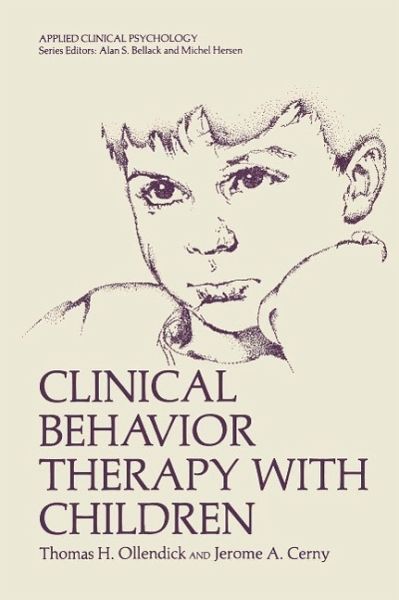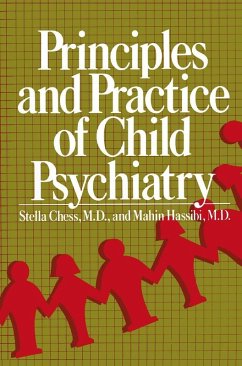
Clinical Behavior Therapy with Children (eBook, PDF)
Versandkostenfrei!
Sofort per Download lieferbar
72,95 €
inkl. MwSt.
Weitere Ausgaben:

PAYBACK Punkte
36 °P sammeln!
As noted by its title, the focus of this book is centered on an examination of behavior therapy with children in clinical settings. Throughout, our goal has been to examine theoretical underpinnings, review empirical research, and illustrate clinical utility for a variety of behavioral proce dures with children. In pursuing this goal, we have described child behavior therapy as an approach based on empirical methodology, de rived from behavioral principles, and focused upon adjustment disor ders of children. The hallmark of such an approach is its accountability the extent to which the procedu...
As noted by its title, the focus of this book is centered on an examination of behavior therapy with children in clinical settings. Throughout, our goal has been to examine theoretical underpinnings, review empirical research, and illustrate clinical utility for a variety of behavioral proce dures with children. In pursuing this goal, we have described child behavior therapy as an approach based on empirical methodology, de rived from behavioral principles, and focused upon adjustment disor ders of children. The hallmark of such an approach is its accountability the extent to which the procedures and techniques presented in this text are demonstrably accountable must be determined at least partially by the reader. As students of child behavior, we have become sensitized to two trends in behavior therapy with children during the preparation of this book. First, we have been concerned with the simple application of behavioral procedures to children, irrespective of developmental con siderations. All too frequently, assessment strategies and treatment pro cedures found to be useful with adults have been applied to children in an indiscriminate fashion. For example, some recent studies have examined and assessed the very same social skill deficits in children as in adults (e. g. , lack of eye contact, delayed latency of response, and absence of positive commendatory responses). Surely, skill deficits differ from age to age just as they differ from situation to situation.
Dieser Download kann aus rechtlichen Gründen nur mit Rechnungsadresse in A, B, BG, CY, CZ, D, DK, EW, E, FIN, F, GR, HR, H, IRL, I, LT, L, LR, M, NL, PL, P, R, S, SLO, SK ausgeliefert werden.












